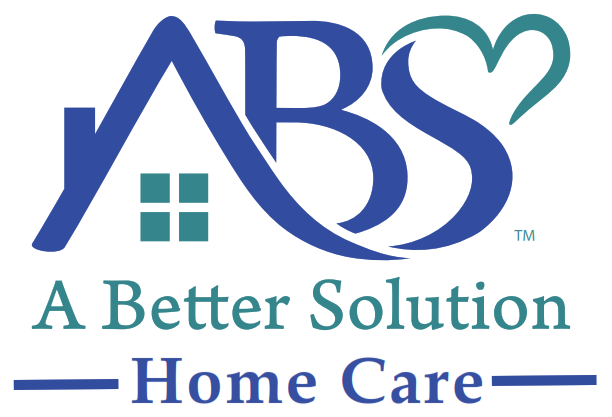
Hospital-to-Home Care for Seniors with Chronic Illness — What Families Need to Know
08-01-2025
Bringing a senior loved one home after a hospital stay can be both a relief and a challenge, especially when chronic illness is involved. Families often feel overwhelmed, unsure how to manage care needs that go beyond basic recovery. That’s where Hospital-to-Home Care becomes vital.
For older adults with long-term health conditions, this care model ensures a smooth recovery in familiar surroundings, reducing the likelihood of medical setbacks. For families, it provides the reassurance of safety, reduced readmissions, and peace of mind, knowing that recovery doesn’t need to be a solo journey.
Understanding Hospital-to-Home Care
It refers to a coordinated, short- or long-term care solution designed to support individuals, particularly seniors, after they're discharged from a hospital. It's more than just sending someone home with medication instructions. It’s a comprehensive service that addresses the full spectrum of recovery needs. Hospital-to-Home Care bridges the gap between hospital and home by offering services like medication management, mobility support, assistance with activities of daily living, and recovery oversight, often delivered by trained caregivers. It allows for a smoother transition from hospital to home, reducing the likelihood of missteps that could lead to complications.
For seniors with chronic conditions, the transition period is especially sensitive. Unlike younger individuals, older adults may be dealing with multiple diagnoses, impaired mobility, or cognitive issues that require tailored attention. The structure of hospital to home services ensures that such complexities are addressed with professionalism and care. This kind of home based care is vital not just for short-term recovery but for building a long-term strategy to maintain health and independence at home.
Why Seniors with Chronic Illness Need Specialized Post-Hospital Care
Chronic Conditions Require Daily Management
Managing chronic illness at home is vastly different from healing from a temporary illness or injury. Chronic conditions like congestive heart failure, diabetes, or chronic obstructive pulmonary disease (COPD) don’t go away. They require continuous attention. Seniors may need daily blood sugar checks, oxygen support, specialized diets, or assistance with multiple medications. These routines can be confusing or even dangerous if not followed correctly. Unlike the 24/7 medical oversight in a hospital, home care relies on timely intervention, which is why professional help becomes so important.
High Risk of Relapse and Complications
After a hospital discharge, seniors with chronic illness are at increased risk for complications such as infections, medication errors, falls, or sudden changes in health status. A single missed dose or skipped appointment can result in a serious setback, often requiring readmission. This is why post-hospital care for elderly patients must be proactive. Monitoring and immediate response are key in detecting problems early and preventing a downward spiral in the recovery process.
The Need for Medical Oversight and Lifestyle Support
Successful recovery doesn’t stop at medication. Seniors with chronic illness often require full-spectrum support, everything from monitoring symptoms and blood pressure to meal planning and safe mobility. Without consistent care, there’s a risk of unintentional neglect or deterioration. Hospital-to-Home care services ensure that all these needs are addressed by trained professionals who can adjust care as the patient progresses. This consistent oversight fosters long-term wellness and helps establish a safe, healing environment at home.
The Role of Professional Caregivers in Chronic Illness Recovery
Professional caregivers are the cornerstone of effective Hospital-to-Home Care for seniors with chronic illness. Their support goes beyond basic assistance. They serve as the daily eyes and ears for potential complications, offering a buffer between home and hospital.
1. Medication Management
Many seniors are prescribed complex medication regimens following a hospital stay. A professional caregiver ensures prescriptions are taken on time and in the right dosage. They can also help track side effects or interactions and communicate any concerns to healthcare providers.
2. Monitoring Symptoms
Caregivers providing Hospital-to-Home Care are trained to recognize the early warning signs of complications, such as swelling, fatigue, changes in appetite, or breathing difficulties. Their daily presence allows for immediate intervention before minor symptoms escalate into emergencies.
3. Personal Care Support
Bathing, dressing, grooming, and mobility assistance all fall under the umbrella of homecare homebase services. These routine tasks are often challenging for seniors after hospitalization and are critical for maintaining dignity and preventing secondary complications like infections or falls.
4. Emotional and Social Support
Chronic illness can take a toll on mental health. Seniors may feel anxious, depressed, or isolated, especially after the disruption of a hospital stay. Professional caregivers offer much-needed emotional support and companionship, reducing feelings of loneliness and helping seniors feel safe and connected. This level of home based care services fosters a holistic recovery. One that considers the body, mind, and spirit.
Creating a Successful Transition Plan for Seniors
The success of Hospital-to-Home Care relies heavily on advance preparation. A well-coordinated plan ensures continuity, safety, and comfort. Here’s how families can structure a smooth transition:
Step 1: Coordinate with hospital discharge planners
Before the hospital discharge, talk to case managers or social workers. They can provide detailed discharge instructions, recommend services, and offer insights into follow-up care needs. This step is essential for solid senior discharge planning.
Step 2: Schedule follow-up medical appointments
Regular check-ins with primary care physicians or specialists are crucial. They allow for progress monitoring, lab work, and medication adjustments based on the recovery process.
Step 3: Prepare the home environment
Remove tripping hazards, install mobility aids like grab bars, and rearrange furniture if needed. Safe surroundings make home recovery after hospitalization not only more comfortable but also more effective.
Step 4: Arrange practical daily help
Supportive tasks like meal preparation, laundry, or transportation to appointments can be handled by caregivers, family, or external services. This ensures seniors don’t overexert themselves and can focus on healing. By following these steps, families create a secure bridge during the transition of care from hospital to home, reducing the likelihood of setbacks.
Preventing Hospital Readmissions
Avoiding re-hospitalization is a top goal of any Hospital-to-Home Care plan. For seniors with chronic illnesses, it's a constant concern often triggered by unmanaged symptoms, skipped medications, or delayed treatment. Daily check-ins by Hospital-to-Home Care caregivers, combined with thorough documentation of symptoms and overall health, form the foundation for readmission prevention for elderly individuals. This real-time observation can help identify health issues before they require emergency intervention.
Additionally, focusing on routines such as proper nutrition, hydration, medication adherence, and mobility plays a critical role in healing at home. Chronic conditions are best managed through consistency, and caregivers help build that structure day by day. Professional caregivers act as both a support system and an early alert mechanism, making it possible for seniors to recover successfully in the comfort of their own homes rather than returning to the hospital unnecessarily.
How Families Can Support the Recovery Process
Family involvement is a vital part of any effective Hospital-to-Home Care program. While caregivers provide the medical and logistical framework, families offer love, encouragement, and familiarity that no one else can. Here are a few ways families can provide meaningful support:
- Stay involved in care coordination: Regular updates and check-ins with caregivers and medical professionals help ensure that everyone is aligned on the recovery plan. This enhances care coordination for older adults.
- Encourage compliance with care plans: Gentle reminders to take medication, attend follow-ups, and stay active can go a long way in maintaining progress.
- Offer emotional support: Simply being present, whether physically or through regular phone calls, can significantly reduce feelings of isolation.
This kind of family caregiving after hospital discharge promotes healing not just physically, but emotionally and mentally as well.
When to Consider Long-Term Care Options
In some cases, even the most robust hospital to home service may not fully meet the long-term needs of a senior with chronic illness. It’s important for families to recognize when a higher level of care may be needed. Signs that short-term Hospital-to-Home Care recovery support may not be enough include:
- Persistent confusion or memory loss
- Ongoing mobility issues that lead to frequent falls
- Progressive worsening of the chronic condition despite support
- Caregiver burnout or inability to manage the demands of care
At this point, families may need to explore options like extended home based elderly care or assisted living facilities. While the idea of leaving home may be difficult, the goal is always the same: safety, dignity, and quality of life. Making this decision should involve the family, caregivers, and healthcare professionals to ensure the most appropriate solution is found.
How A Better Solution Home Care Helps Seniors with Chronic Illness
At A Better Solution Home Care, we specialize in bridging the gap between hospital discharge and long-term wellness through individualized Hospital-to-Home Care. Our approach is grounded in compassion and clinical excellence. We offer:
- Tailored care plans developed in collaboration with families and physicians
- Caregivers trained specifically in managing chronic conditions such as COPD, stroke, heart failure, or diabetes
- Flexible service models, from a few hours a day to full 24/7 hospital to home services
- Emotional, physical, and logistical support designed to reduce stress and promote comfort
Our team works closely with your loved one’s healthcare providers to ensure continuity and coherence in the recovery process. Whether you need short-term Hospital-to-Home Care or are transitioning into long-term home care, we’re here to help every step of the way.
Making Hospital-to-Home Care a Safe and Supportive Journey for Seniors
Transitioning home after a hospital stay doesn’t have to be confusing or overwhelming. With the right care plan and trusted professionals, your loved one can regain strength, confidence, and independence, even while managing a chronic illness.
Let A Better Solution Home Care provide the support your family needs. Contact us today for a free consultation and learn how our Hospital-to-Home Care services can make recovery easier and safer.
